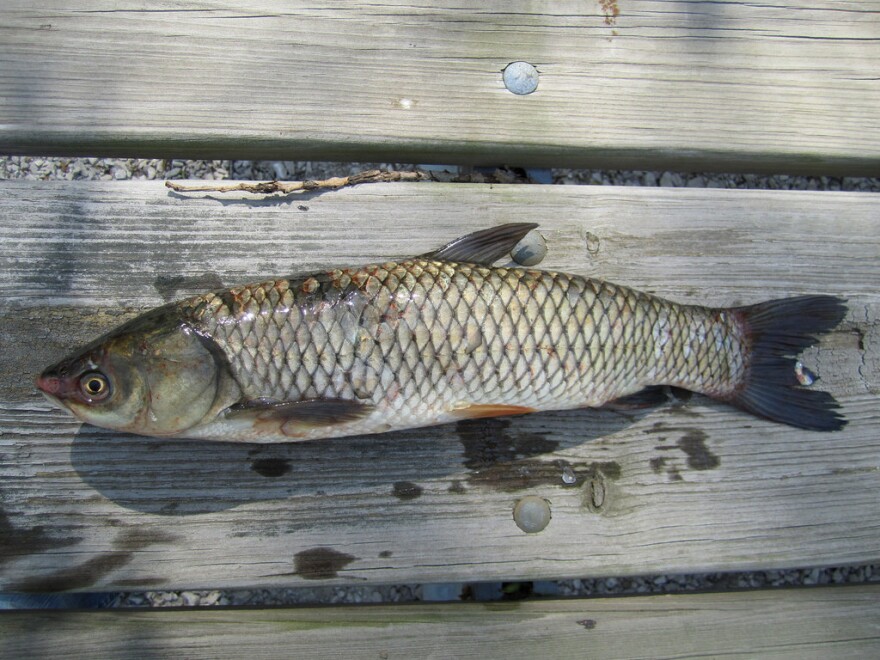Researchers say they’ve found grass carp eggs in the Sandusky River for the first time. The river flows into Lake Erie near Cedar Point.
Grass carp are a type of invasive Asian carp. This is the first time scientists have had direct confirmation that the fish are reproducing in the river.
Holly Embke found the eggs. She’s a master’s student at the University of Toledo.
“The reason we were looking where we were looking in the Sandusky River was because we thought there was the possibility of spawning, so it wasn’t wholly surprising to find eggs,” she says.
She says researchers found young grass carp in the Sandusky River in 2012.
“Grass carp adults have been found in all of the Great Lakes except for Lake Superior," says Embke. "But prior to the findings in 2012 that indicated that spawning was occurring in the Sandusky River, it was always thought those adults were the sterile version of the fish that are legally able to be stocked in many states.”
She says the grass carp in the Sandusky River are the only population in the Great Lakes basin that are known to be reproducing.
Patrick Kocovsky is a research fishery biologist with the U.S. Geological Survey. He’s working with the researchers at the University of Toledo.
“The primary threat of grass carp is that they consume large amount of aquatic vegetation so that can damage the vegetation community. The vegetation community in turn provides habitat for small fishes, and that would reduce habitat for small fishes,” he says.
Kocovsky says grass carp are considered less of a threat to the Great Lakes than bighead and silver carp.
He says they'll continue to sample the Sandusky River to look for more eggs.
"The more eggs we get, the better we can project where those eggs were laid and where they might hatch, which will help us better understand their spawning biology," he says. "We can also start to sample other rivers that are tributaries to Lake Erie to see if there’s evidence of grass carp spawning in them."
He says they're focusing their efforts on catching eggs, because adult grass carp are very hard to capture.






